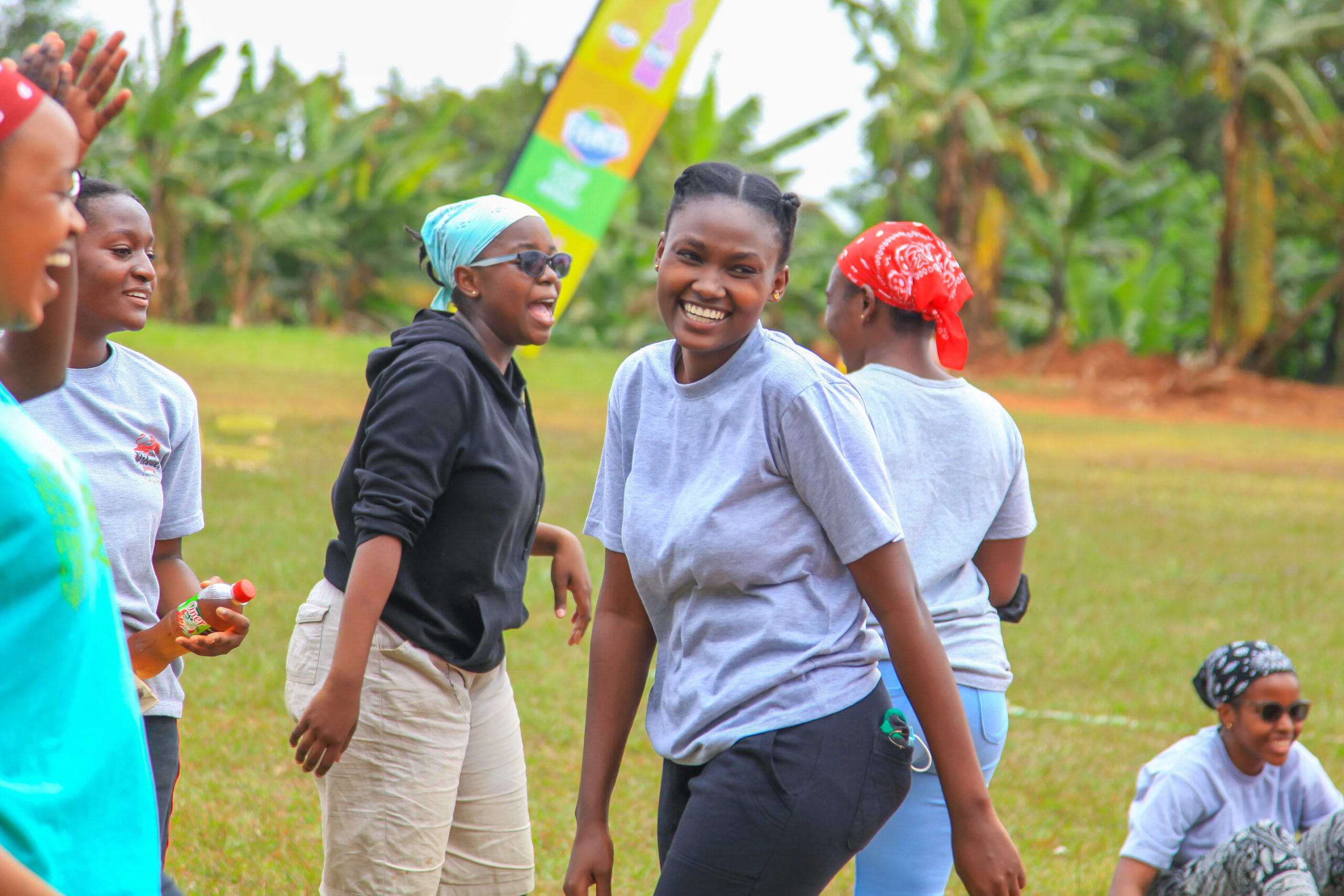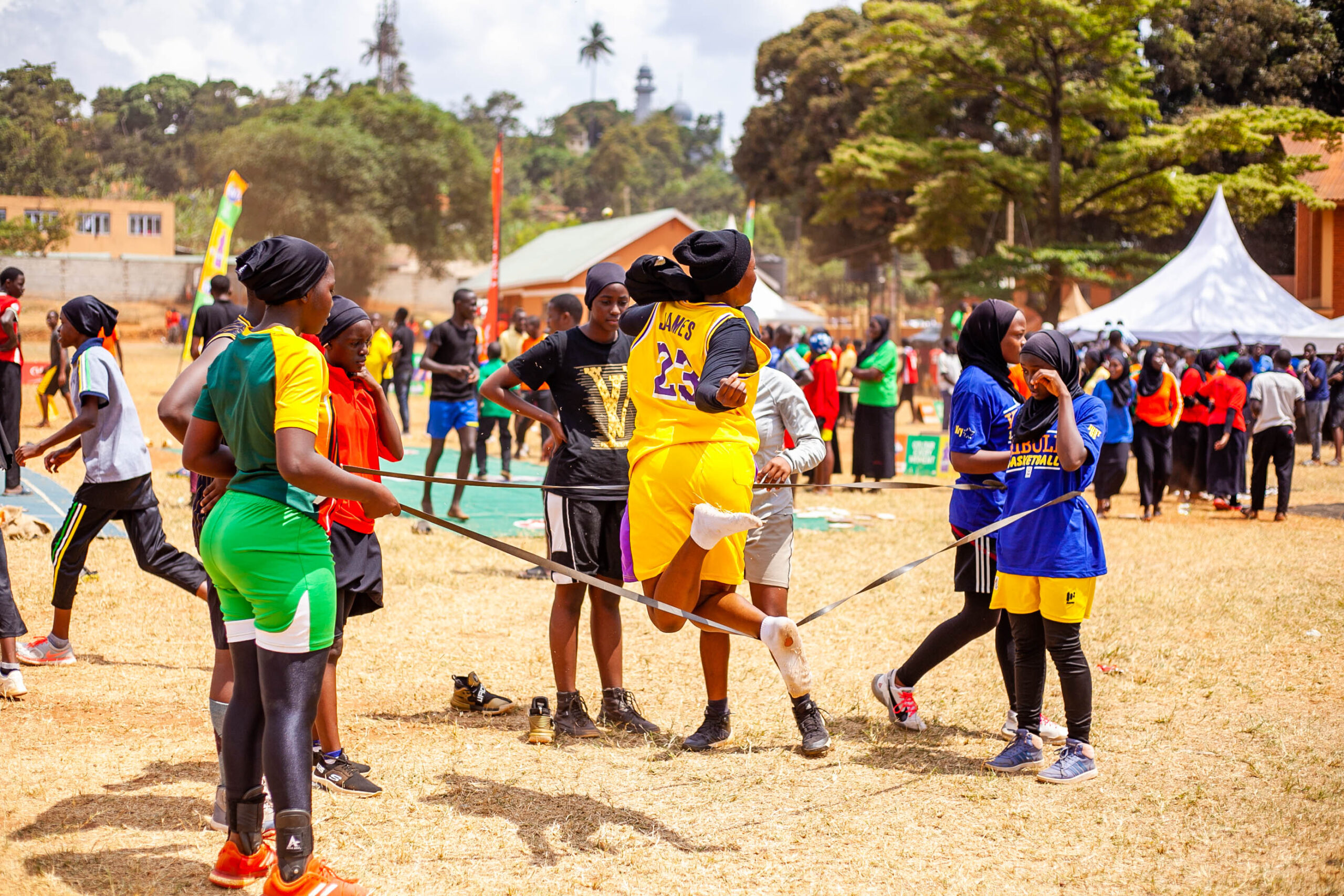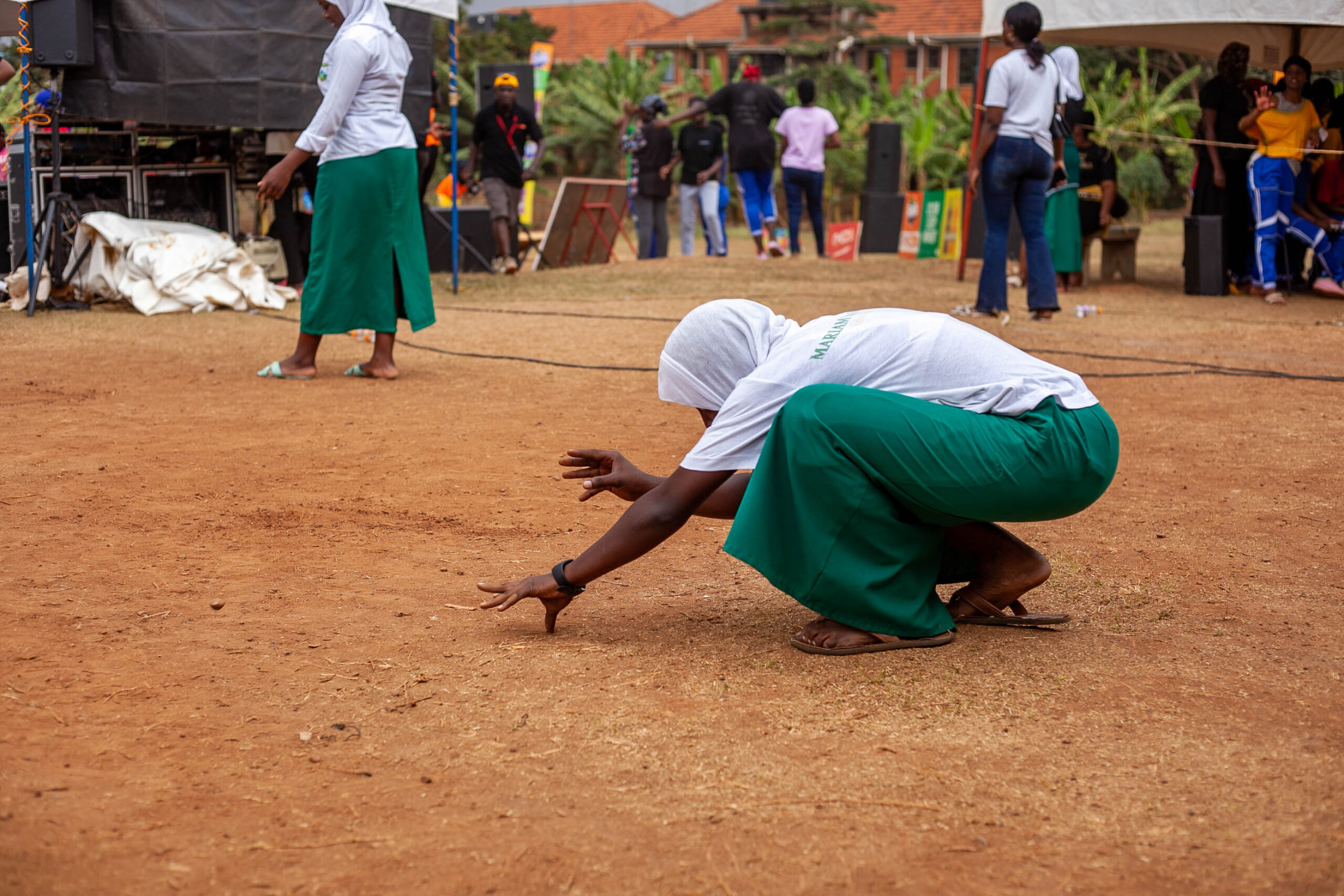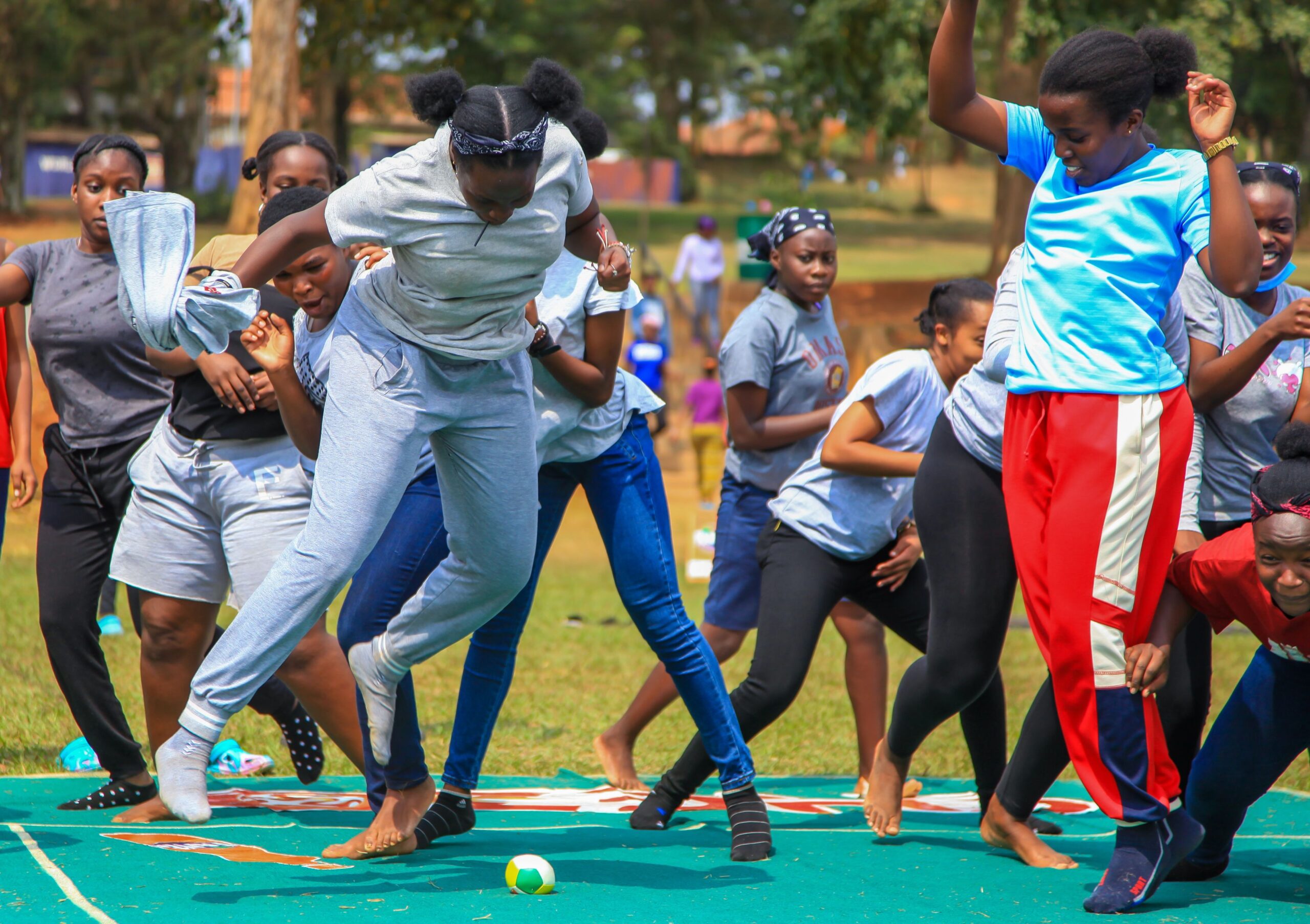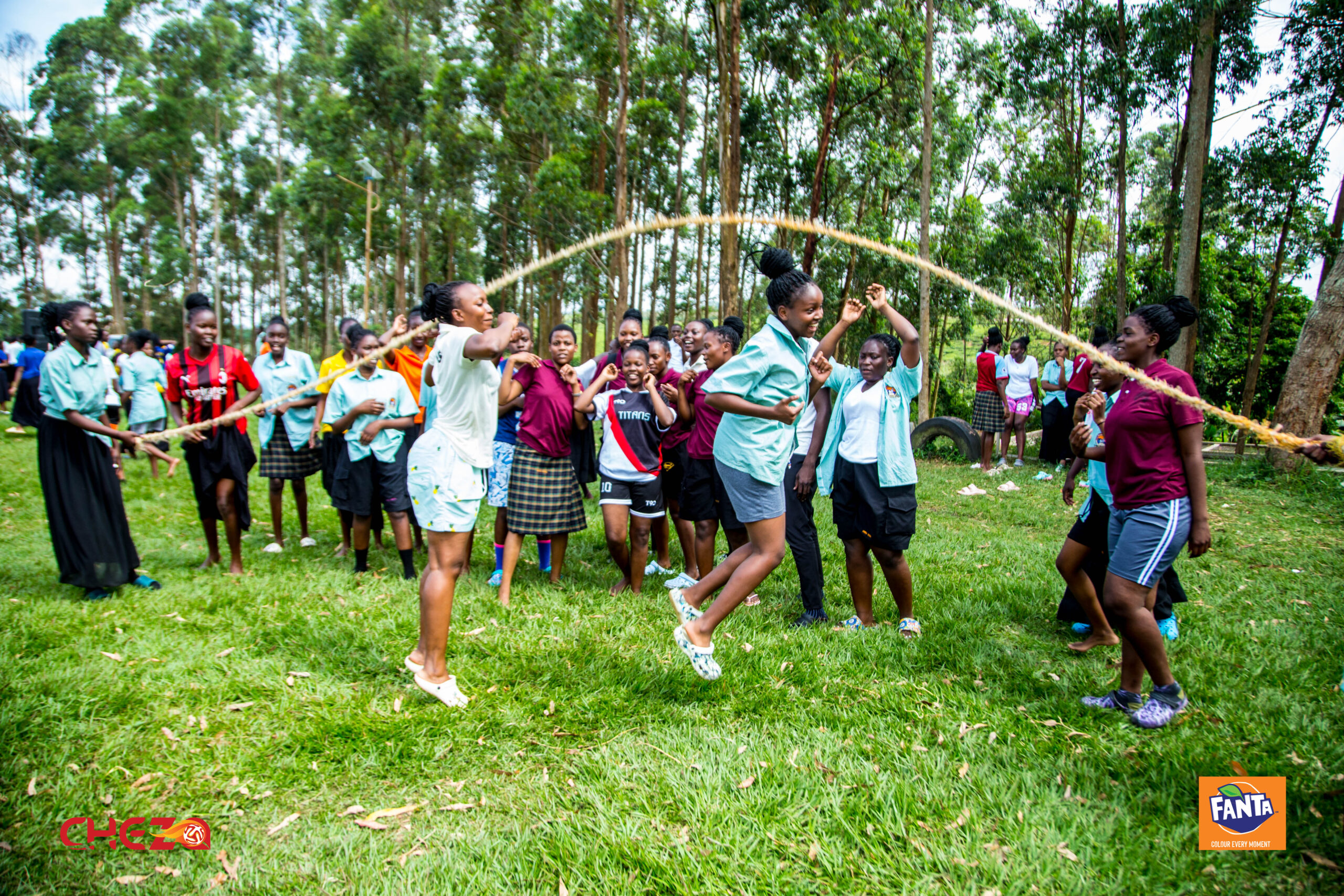Across Africa, sports have long been seen as a male-dominated field, with fewer opportunities for girls and young women to participate in structured physical activities. However, traditional African games have always been inclusive, providing a space where girls can play, compete, and thrive.
At Cheza, we are using these games as a tool for empowerment, confidence-building, and gender equality. Through structured programs, school competitions, and advocacy initiatives, we are ensuring that girls have access to sports and the opportunities that come with them.
Sonko is a game of balance and strategy, where players must hop through a series of squares drawn on the ground, following specific patterns. It is widely played in rural and urban areas across Africa and is a favorite among young children.
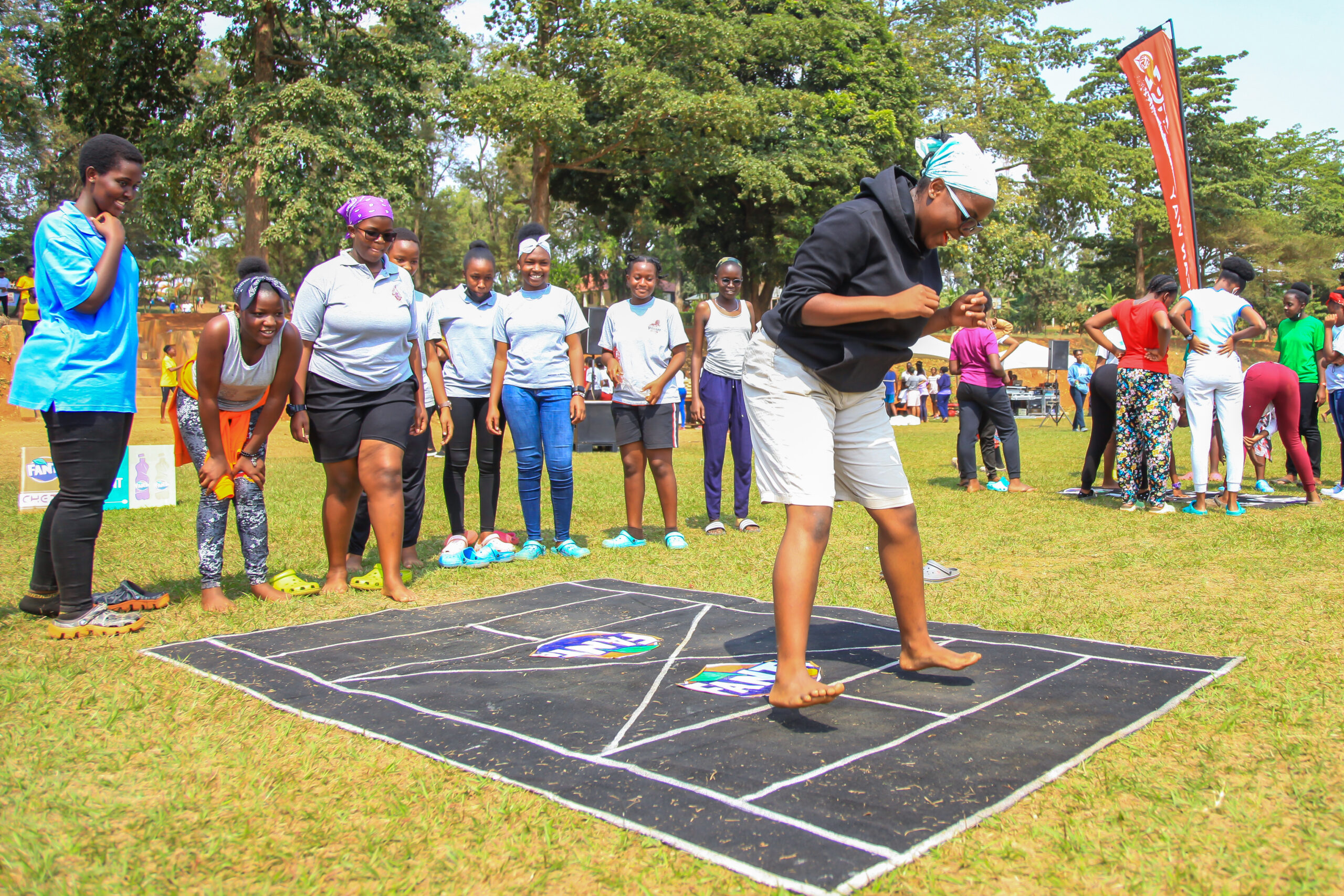
- Sonko is a game of balance and strategy, where players must hop through a series of squares drawn on the ground, following specific patterns. It is widely played in rural and urban areas across Africa and is a favorite among young children.
The Power of Play: Why Sports Matter for Girls
Sports have a profound impact on a young girl’s physical, emotional, and social development. Studies show that girls who play sports are:
Healthier – They are less likely to suffer from obesity, heart disease, and other health conditions.
More Confident – Playing in teams boosts self-esteem and leadership skills.
More Likely to Stay in School – Girls involved in sports have higher attendance rates and better academic performance.
Less Vulnerable to Gender-Based Violence (GBV) – Sports provide safe spaces for girls to engage with their peers and mentors.
Despite these benefits, girls across Africa face significant barriers to sports participation, including:
- Lack of safe play spaces
- Cultural stereotypes discouraging female participation in sports
- Limited access to equipment and structured leagues
Through Cheza’s programs, we are breaking down these barriers and creating pathways for young women to succeed in sports and beyond.
How Traditional African Games Empower Girls
Unlike many modern sports that were designed with men in mind, traditional African games have always encouraged participation from both boys and girls. At Cheza, we are using these games to:
1. Provide Safe and Inclusive Spaces for Girls
We organize school and community tournaments where girls can play freely without fear of discrimination. Our Cheza School Activations and Cheza Kwepena League encourage young women to compete in a safe and supportive environment.
2. Build Leadership and Teamwork Skills
Games like Kwepena (ChezaDodge) require quick decision-making, strategy, and team coordination. By playing, girls develop leadership skills that help them in school, careers, and community roles.
3. Boost Physical and Mental Well-being
Physical activity helps reduce stress, anxiety, and depression. Girls who engage in structured play are more likely to:
- Have higher self-confidence
- Build resilience against societal pressures
- Improve academic performance
4. Challenge Gender Stereotypes
Many societies discourage girls from being physically active. Through Cheza tournaments, workshops, and mentorship programs, we challenge these norms and prove that sports are for everyone.
Cheza Initiatives for Girls
1. Cheza Kwepena League
Our school-based league gives girls a competitive sports platform where they can:
- Train and compete in structured matches
- Gain recognition as athletes
- Develop teamwork and leadership skills
2. #Together4Her Campaign
This initiative uses traditional African sports to promote gender equality and support teenage mothers. Through community events and fundraising tournaments, we provide:
- Safe spaces for girls to express themselves
- Mentorship programs with female athletes and leaders
- Support for young mothers facing crisis pregnancies
3. The Kwepena Festival
Our flagship multicultural event celebrates girls in sports by featuring:
- Women-only and mixed-gender competitions
- Panel discussions on women in sports
- Showcases of female sports leaders and athletes
4. Schools and Community Play Hubs
We are establishing over 100 community play hubs across East Africa, ensuring that:
- Girls have equal access to play spaces
- Cultural games are used to teach life skills
- More young women engage in physical activity
Success Stories: The Impact of Cheza on Young Women
Amina, 16 – From Player to Leader
Before joining Cheza, Amina had never played sports due to cultural restrictions in her community. After participating in the Cheza Kwepena League, she not only became an active player but also started mentoring other girls in her school.
“Playing Kwepena changed my life. I never thought I could be good at sports, but now I feel strong and confident. I want to encourage other girls to play too.”
Grace, 18 – Overcoming Trauma Through Play
Grace was a teenage mother who faced social isolation and stigma. Through the Together4Her campaign, she found a supportive community and used traditional games as a way to heal and reconnect with her peers.
“Sports gave me a second chance. It showed me that I am still capable, still strong, and still valuable.”
The Future: Expanding Opportunities for Girls in Sports
Cheza is committed to ensuring that more girls have access to sports. In the next five years, we aim to:
Train 500+ female coaches and mentors
Expand the Cheza Kwepena League to more schools
Build more play hubs for girls in underserved communities
Work with policymakers to ensure equal opportunities for girls in sports
Join the Movement!
We believe that every girl deserves a chance to play, compete, and thrive. Join us in empowering the next generation of female athletes by:
Starting a Cheza club in your school or community
Supporting our tournaments and advocacy programs
Spreading awareness about girls in sports
Together, we can build a future where girls play, lead, and succeed!
#PlayTheAfricanWay | #GirlsInSports | #Together4Her

